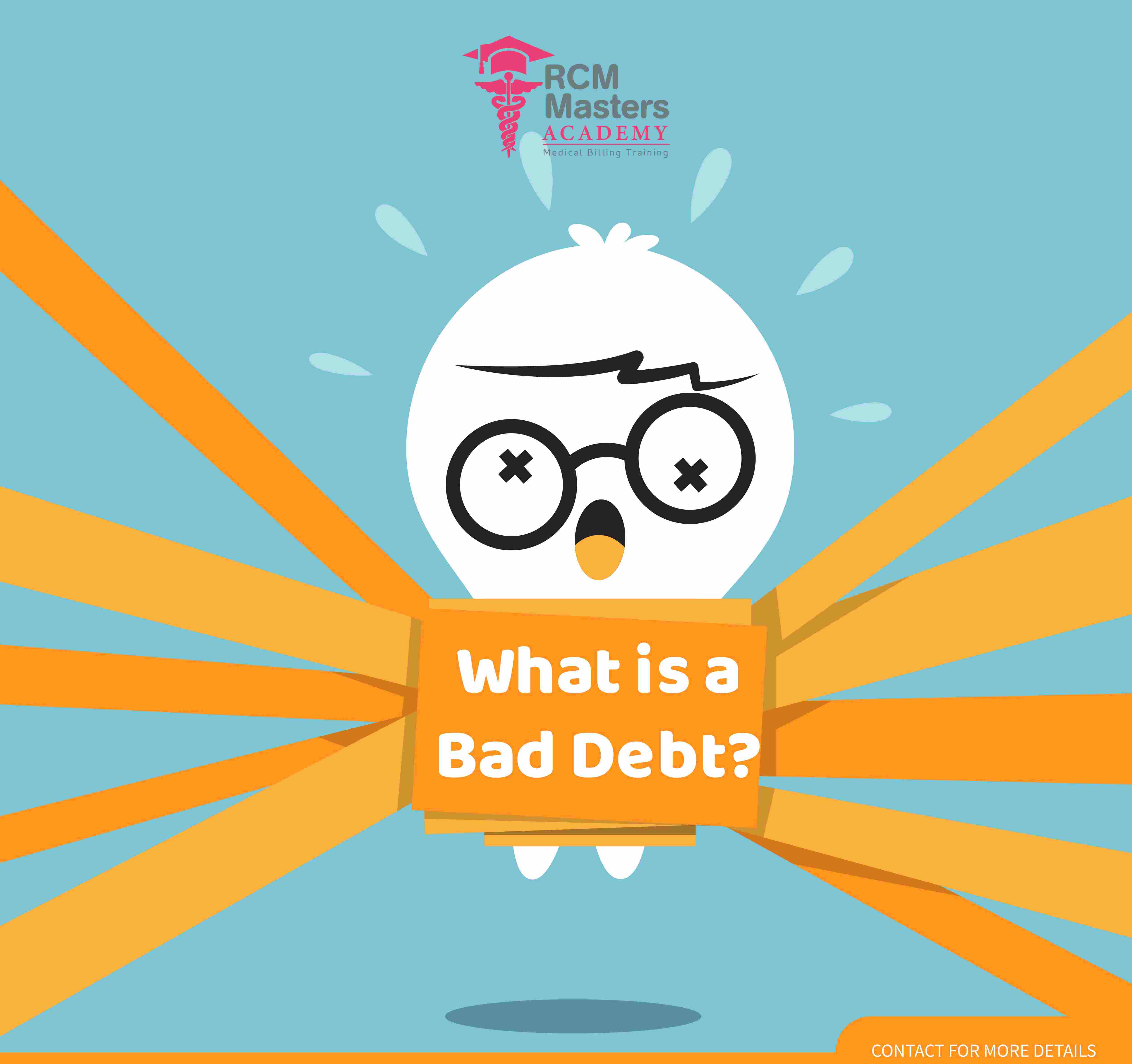 info@rcmmastersacademy.com
info@rcmmastersacademy.com

Bad debt is a term used to describe any unpaid or uncollectible debt that a company or individual is not able to recover. It's a loss incurred by the lender or creditor, and it's a common occurrence in the financial world. A bad debt can have serious consequences for the lender or creditor, and it's important to understand the concept of bad debt to avoid it.
Bad debt is often the result of an individual or company defaulting on a loan or failing to pay off a credit balance. It can also arise from accounts receivable that a business is unable to collect. For example, if a company provides goods or services to a customer but doesn't receive payment, that debt becomes bad debt. Bad debt can also be the result of loans or investments that a company makes that don't generate the expected return.
The effects of bad debt can be significant, particularly for small businesses. When a business is unable to recover the money owed to it, it can cause cash flow problems and potentially lead to bankruptcy. For individuals, bad debt can damage credit scores and make it more difficult to obtain credit in the future. In extreme cases, bad debt can even result in legal action being taken against the debtor.
One common cause of bad debt is poor credit management. When businesses or individuals don't keep track of their debts or don't have a system in place to chase up payments, it can result in unpaid debts becoming bad debts. To avoid this, it's important to have a clear system in place for managing credit, including regular credit checks and chasing up overdue payments.
Another cause of bad debt is a lack of due diligence. This is particularly relevant for companies that provide loans or invest in other businesses. If a company doesn't thoroughly research the borrower or investment opportunity before providing funds, it can result in bad debt if the borrower or investment doesn't perform as expected.
It's important to note that bad debt is different from a write-off. A write-off occurs when a company or individual decides to cancel a debt that they are owed. This can be for various reasons, such as if the debt is too small to pursue or if the debtor has filed for bankruptcy. A write-off doesn't necessarily mean that the debt is bad debt, but it can be an indicator that the debt is unlikely to be recovered.
In conclusion, bad debt is a term used to describe any debt that a lender or creditor is unable to recover. It can have serious consequences for businesses and individuals, including cash flow problems, damaged credit scores, and legal action. Poor credit management and a lack of due diligence are common causes of bad debt, and it's important to have systems in place to avoid it. While a write-off doesn't necessarily mean that a debt is bad debt, it can be an indication that the debt is unlikely to be recovered.
You can enroll for our Online Medical Billing Training here: